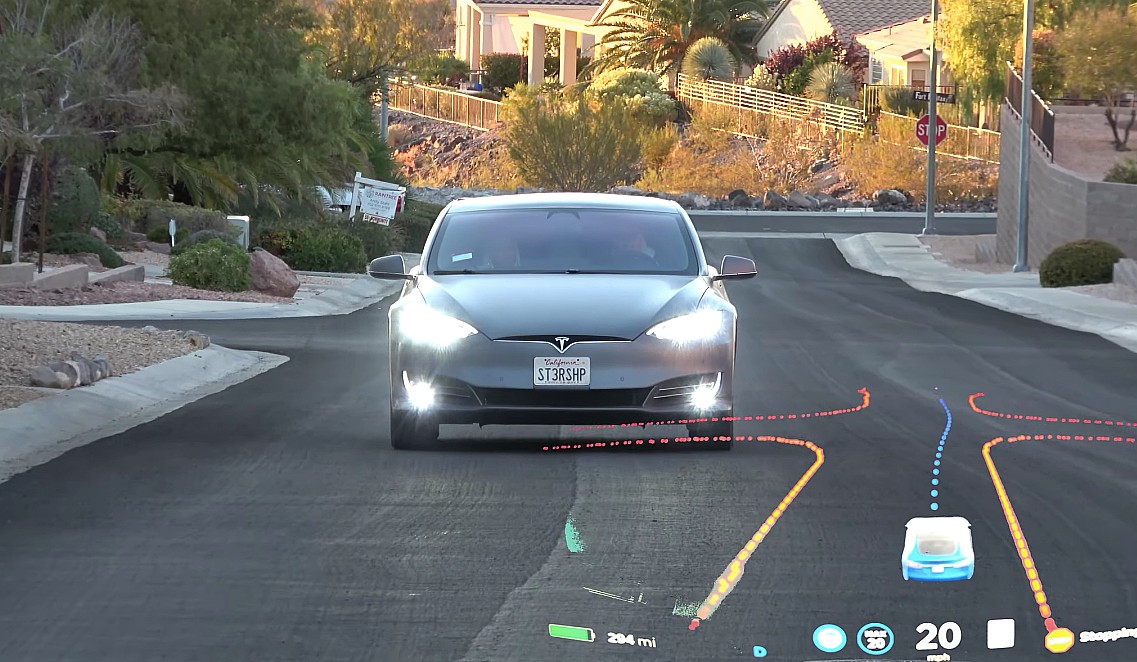
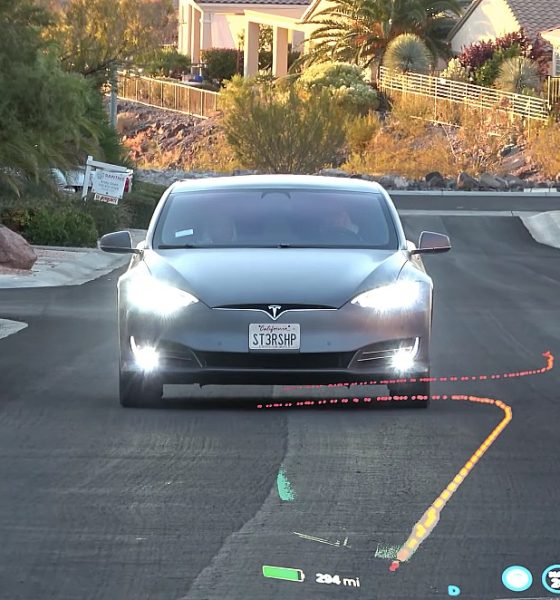
News
Tesla FSD’s vision-based approach critiqued by Waymo CEO: ‘Our sensors are orders of magnitude better’
Tesla’s Full Self-Driving Beta may be improving at a rapid pace since its first iteration was released back in October, but Waymo CEO John Krafcik seems to be under the impression that there is a ceiling for the electric car maker’s current autonomous driving efforts. In an interview with German business publication manager magazin, Krafcik stated that Tesla is not a competitor to Waymo, as the EV maker’s tech is just a “really good driver assistance system.”
Waymo’s vehicles, which are equipped with a variety of sensors including LiDAR, are designed to be operated without a human driver. The company has even requested its passengers to not touch its autonomous cars’ steering wheel while the vehicles are operating. In comparison, Tesla’s Full Self-Driving Beta, as well as the company’s tech Navigate on Autopilot, still requires drivers to keep their hands on the steering wheel to prepare for manual intervention.
Tesla aims to develop a full self-driving suite through a vision-based system that relies on incremental improvements that are rolled out over time. Through constant updates that are built on real-world driving data gathered from its fleet, Tesla hopes to roll out a version of its FSD suite that would truly be a hands-off system. Once this is achieved, the EV maker aims to launch its own ride-hailing service, dubbed by Elon Musk as the Robotaxi Network.
This, according to the Waymo CEO, is a misconception. He also remarked that between Tesla’s camera-based approach and Waymo’s more robust sensor suite, his company’s sensors hold a massive advantage over Tesla’s electric cars. “It is a misconception that you can just keep developing a driver assistance system until one day you can magically leap to a fully autonomous driving system. In terms of robustness and accuracy, for example, our sensors are orders of magnitude better than what we see on the road from other manufacturers,” Krafcik said.
One of the notable arguments against Waymo’s autonomous vehicles is their cost, especially considering that their sensor suite includes expensive components. The CEO, however, notes that the cost of its vehicles is actually overestimated, especially as the price of sensors such as LiDAR has gotten significantly lower over the years. Today, Krafcik notes that the cost of a Waymo autonomous car is on the same ballpark as a moderately-equipped Mercedes-Benz S-Class.
“Let me paraphrase it like this: If we equip a Chrysler Pacifica Van or a Jaguar I-Pace with our sensors and computers, it costs no more than a moderately equipped Mercedes S-Class. So for the entire package, including the car – today. The costs for the technology are greatly overestimated – at least in our case” he said.
Krafcik noted that he expects the hardware cost per mile of Waymo’s autonomous vehicles to come in at around $0.30 per mile before maintenance and service costs, including fleet technicians and customer support representatives. In comparison, ride-hailing services today such as Uber and Lyft operate at around $2-$3 per mile. Tesla, on the other hand, expects an $0.18 per mile operating cost for its Robotaxi Network, as per the company’s estimates during its Autonomy Day presentation in 2019.
Don’t hesitate to contact us for news tips. Just send a message to tips@teslarati.com to give us a heads up.

News
Tesla accuses IG Metall member of secretly recording Giga Berlin meeting
The union has denied the electric vehicle maker’s allegations.
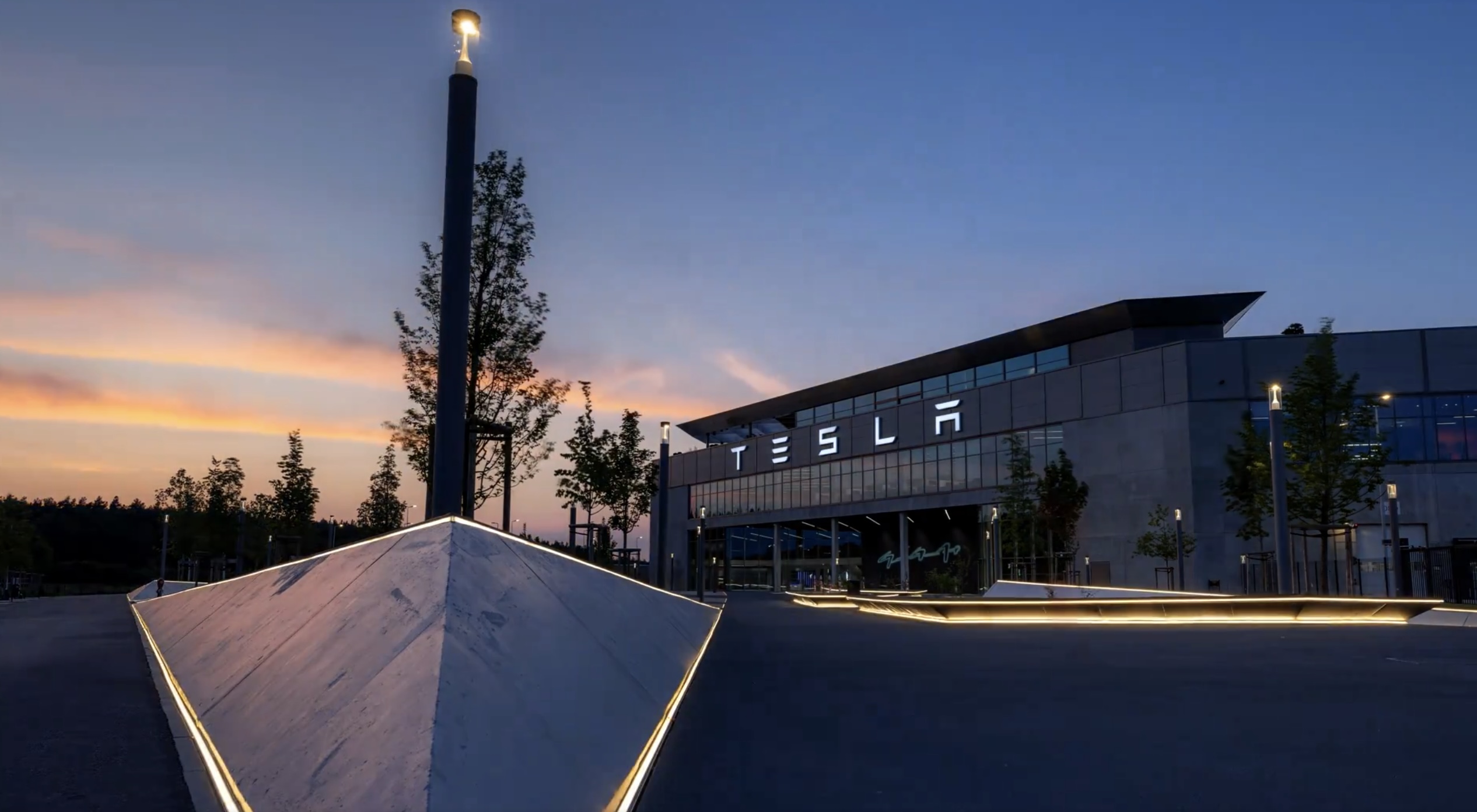
Police seized the computer of an IG Metall member at Tesla Giga Berlin on Tuesday amid allegations that a works council meeting was secretly recorded.
The union has denied the electric vehicle maker’s allegations.
In a post on X, Gigafactory Berlin plant manager André Thierig stated that an external union representative from IG Metall attended a works council meeting and allegedly recorded the session. Thierig described the event as “truly beyond words.”
“What has happened today at Giga Berlin is truly beyond words! An external union representative from IG Metall attended a works council meeting. For unknown reasons he recorded the internal meeting and was caught in action! We obviously called police and filed a criminal complaint!” Thierig wrote in his post on X.
Police later confirmed to local news outlet rbb24 that officers did seize a computer belonging to an IG Metall member at the Giga Berlin site on Tuesday afternoon. Tesla stated that employees had contacted authorities after discovering the alleged recording.
IG Metall denied Tesla’s accusations, arguing that its representative did not record the meeting. The union alleged that Tesla’s claim was simply a tactic ahead of upcoming works council elections.
The next works council election at Giga Berlin is scheduled for March 2 to 4, 2026. The facility’s management had confirmed the dates to local news outlets. The official announcement marks the start of the election process and campaign period.
Approximately 11,000 employees are eligible to participate in the vote.
The previous works council election at the plant took place in 2024, and it was triggered by a notable increase in workforce size. Under German labor law, regular works council elections must be held every four years between March 1 and May 31.
Elon Musk
Elon Musk’s xAI plants flag in Bellevue AI hotspot
The lease places xAI’s new office in one of the region’s fastest-growing tech hubs.
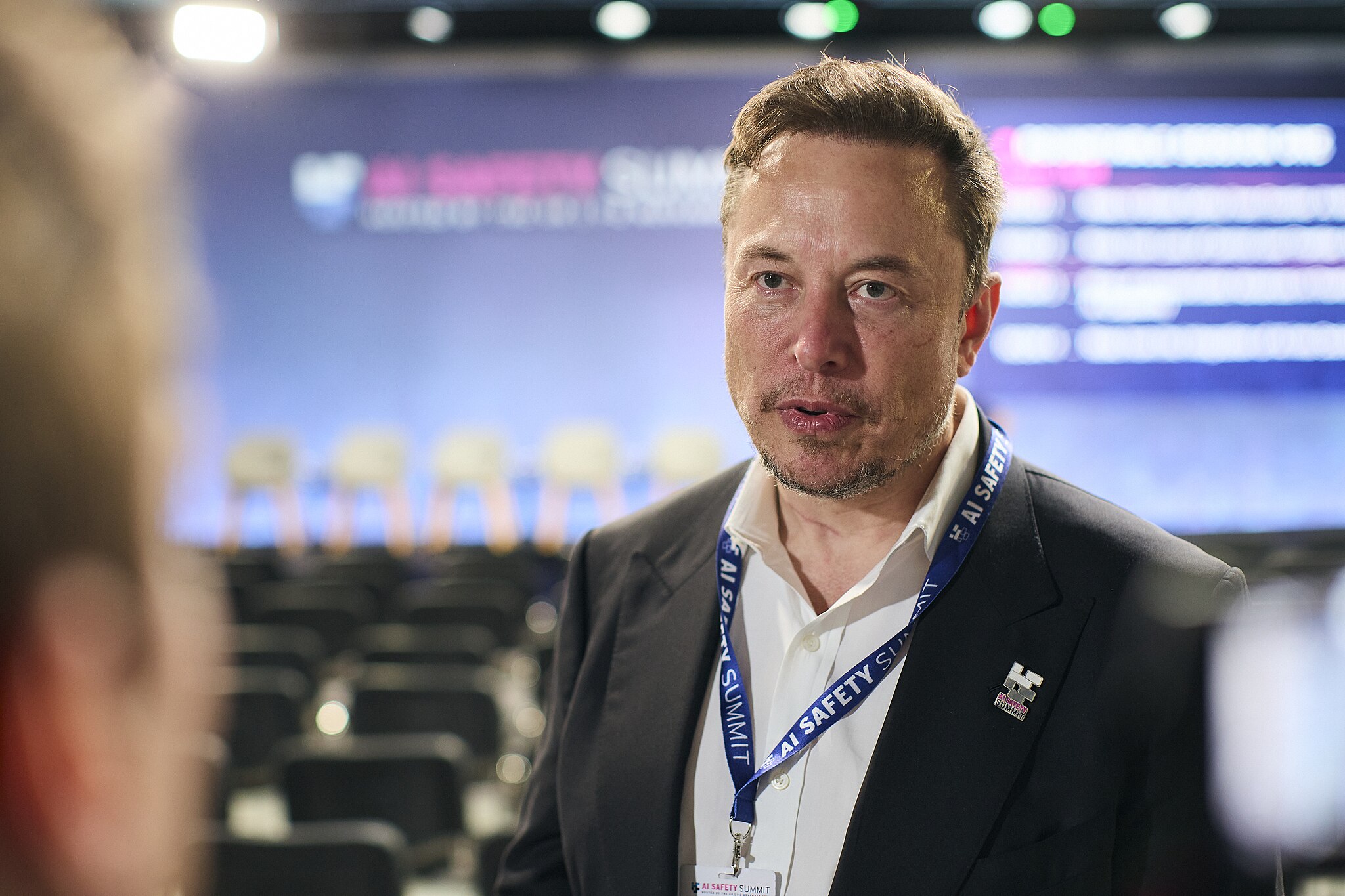
Elon Musk’s artificial intelligence company xAI has leased a full floor at Lincoln Square South in downtown Bellevue, WA, as per city permit filings.
The lease places xAI’s new office in one of the region’s fastest-growing tech hubs.
Public records indicate that xAI leased roughly 24,800 square feet in Lincoln Square South. The location was previously occupied by video game company Epic Games. Lincoln Square South is part of the Bellevue Collection, which is owned by Kemper Development Co.
The lease was first referenced in January by commercial real estate firm Broderick Group, which noted that an unnamed tenant had secured the space, as stated in a report from the Puget Sound Business Journal. Later filings identified xAI as the occupant for the space.
xAI has not publicly commented on the lease.
xAI hinted at plans to open an office in the Seattle area back in September, when the startup posted job openings with salaries ranging from $180,000 to $440,000. At the time, the company had narrowed its location search to cities on the Eastside but had not finalized a lease.
xAI’s Bellevue expansion comes as Musk continues consolidating his businesses. Last week, SpaceX acquired xAI in a deal that valued the artificial intelligence startup at $250 billion. SpaceX itself is now valued at roughly $1.25 trillion and is expected to pursue an initial public offering (IPO) later this year.
Musk already has a significant presence in the region through SpaceX, which employs about 2,000 workers locally. That initiative, however, is focused largely on Starlink satellite development.
Bellevue has increasingly become a center for artificial intelligence companies. OpenAI has expanded its local office footprint to nearly 300,000 square feet. Data infrastructure firms such as Crusoe and CoreWeave have also established offices downtown.
Elon Musk
SpaceX blocks unauthorized Starlink terminals used by Russian troops
Ukrainian officials confirmed that Starlink terminals believed to be used by Russian troops were disabled after coordination with SpaceX.
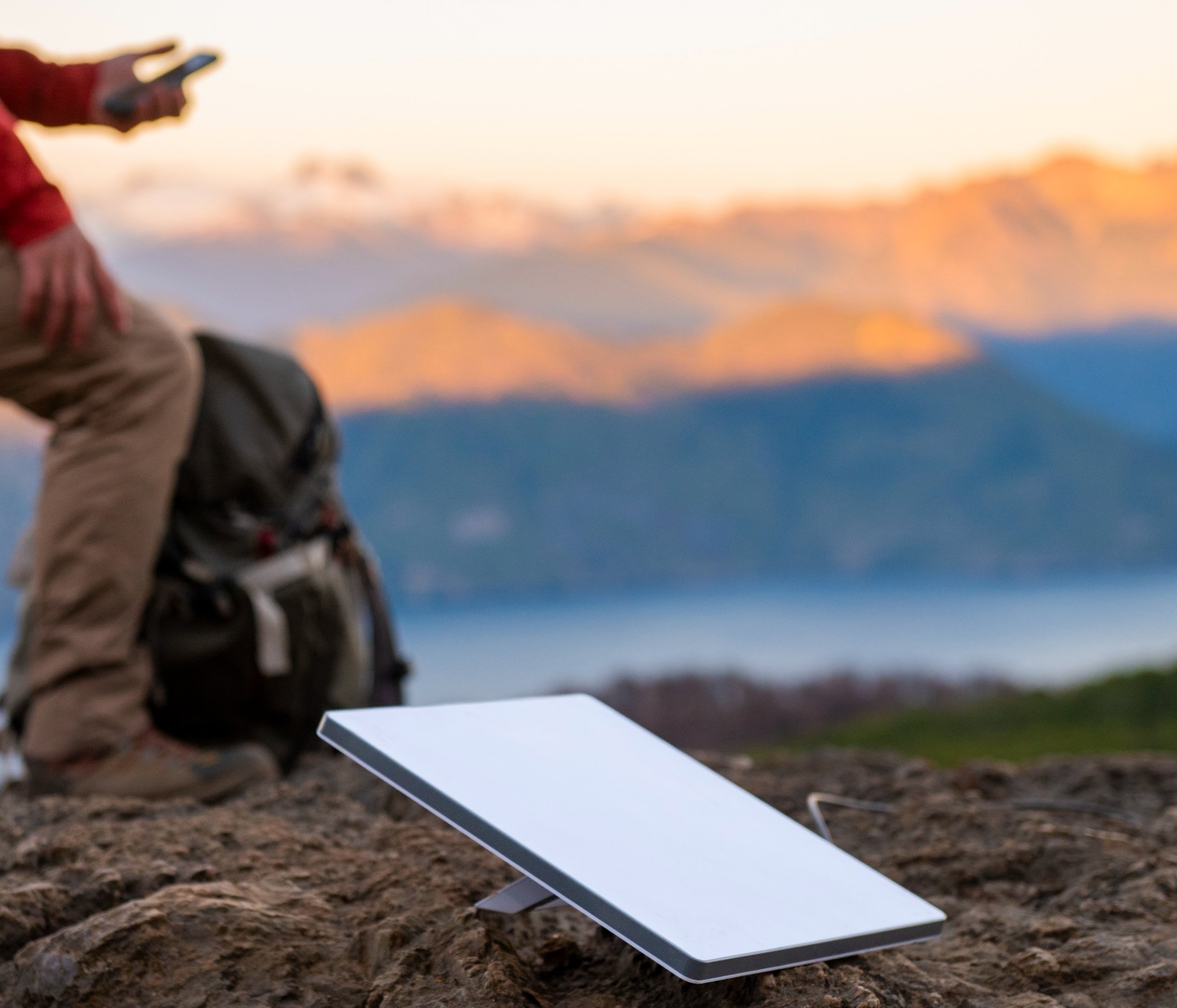
SpaceX has taken steps to block unauthorized use of its Starlink satellite internet network, a move Ukrainian officials stated is already disrupting Russian military communications.
Russian units lose a key communications tool
As per a report from The Guardian, Ukrainian defense officials have confirmed that Starlink terminals believed to be used by Russian troops were recently disabled after coordination with SpaceX. The move reportedly affected frontline communications and drone operations, especially in areas where traditional military radios are unreliable or easily jammed.
For months, Russian units had relied on large numbers of illicitly obtained Starlink terminals to stay connected along the front. The satellite internet service allowed faster coordination and more precise drone use for Russian forces.
Several Russian military bloggers close to frontline units have acknowledged the impact of the Starlink shutdown, with some describing sudden connectivity problems in the satellite internet service.
Russia lacks comparable replacement
Russia does not have a satellite internet system that matches Starlink’s speed, coverage, and ease of deployment. Alternatives such as fiber-optic lines, short-range wireless links, and digital radio systems take longer to install and work inadequately for fast-moving units.
Russia does operate limited satellite communications through state-linked providers, but those systems rely mainly on geostationary satellites, which are notably slower. Coverage is uneven, and data capacity is far lower than Starlink’s low-Earth-orbit network.
For now, Ukraine has stated that it has introduced a verification system that allows only approved Starlink terminals to connect. Devices believed to be linked to Russian forces are blocked from the network. That being said, Ukrainian officials have also claimed Russian units are trying to work around the restrictions by asking civilians to register Starlink terminals in their names.








